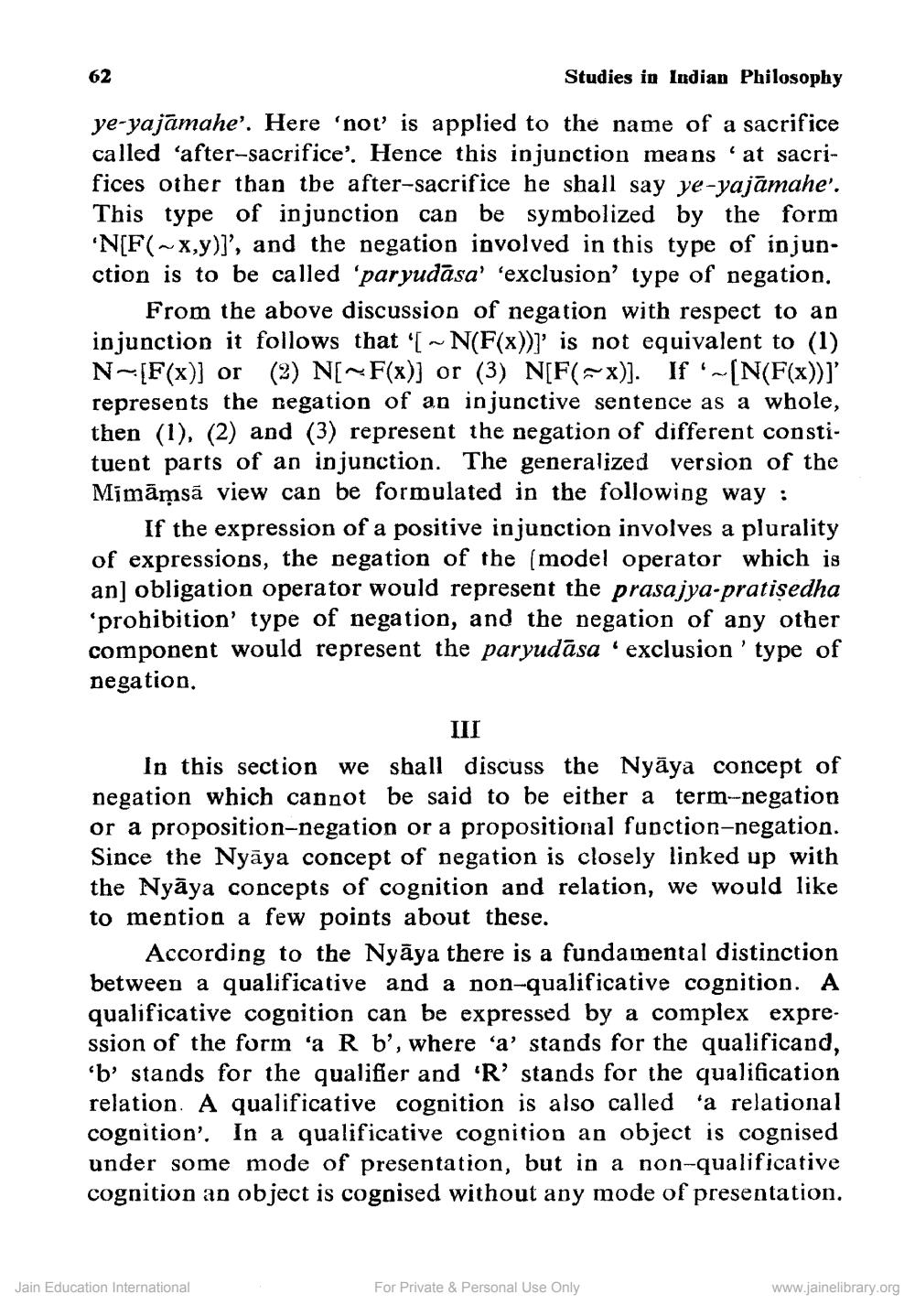________________
62
Studies in Indian Philosophy
ye-yajāmahe'. Here 'nol is applied to the name of a sacrifice called 'after-sacrifice'. Hence this injunction means 'at sacrifices other than the after-sacrifice he shall say ye-yajāmahe'. This type of injunction can be symbolized by the form 'N[F(~x,y)]', and the negation involved in this type of injunction is to be called 'paryudasa' 'exclusion' type of negation.
From the above discussion of negation with respect to an injunction it follows that '[~ N(F(x))]' is not equivalent to (1) N-[F(x)) or (2) N[-F(x)] or (3) N[F( x)]. If '~[N(F(x))]' represents the negation of an injunctive sentence as a whole, then (1), (2) and (3) represent the negation of different constituent parts of an injunction. The generalized version of the Mimāṁsā view can be formulated in the following way :
If the expression of a positive injunction involves a plurality of expressions, the negation of the (model operator which is an] obligation operator would represent the prasajya-pratisedha 'prohibition' type of negation, and the negation of any other component would represent the paryudāsa 'exclusion 'type of negation.
III In this section we shall discuss the Nyāya concept of negation which cannot be said to be either a term-negation or a proposition-negation or a propositional function-negation. Since the Nyāya concept of negation is closely linked up with the Nyāya concepts of cognition and relation, we would like to mention a few points about these.
According to the Nyāya there is a fundamental distinction between a qualificative and a non-qualificative cognition. A qualificative cognition can be expressed by a complex expression of the form 'a R b', where 'a' stands for the qualificand, 'b' stands for the qualifier and 'R' stands for the qualification relation. A qualificative cognition is also called 'a relational cognition'. In a qualificative cognition an object is cognised under some mode of presentation, but in a non-qualificative cognition an object is cognised without any mode of presentation.
Jain Education International
For Private & Personal Use Only
www.jainelibrary.org




